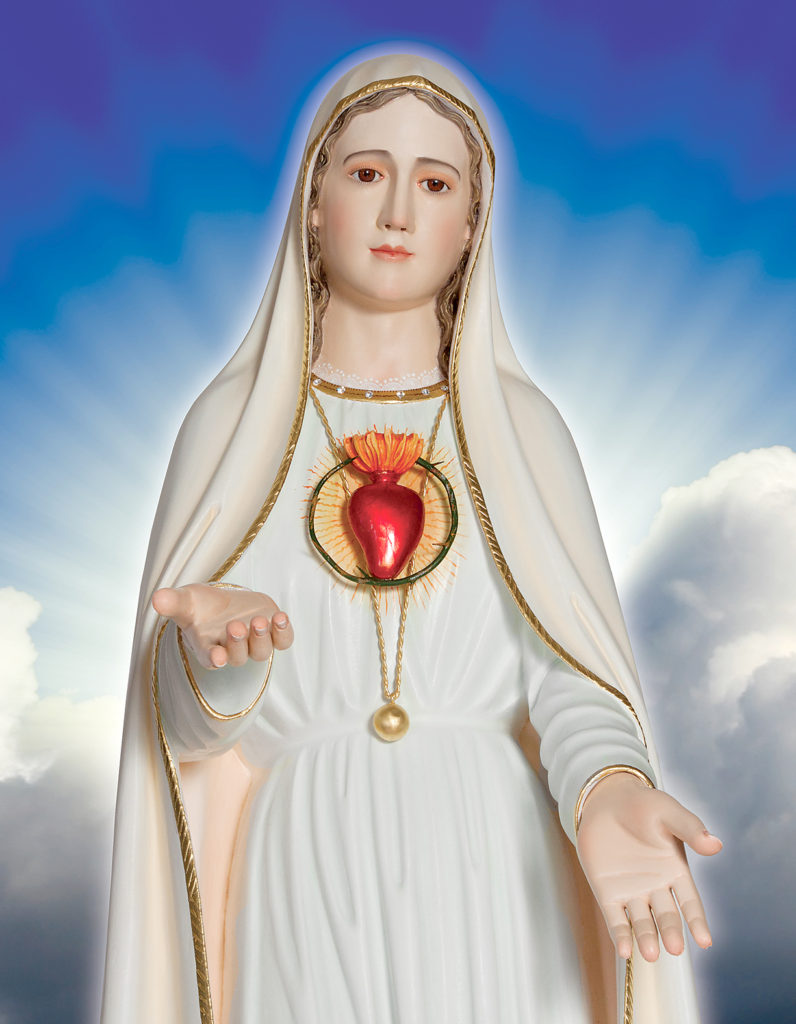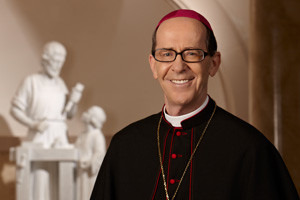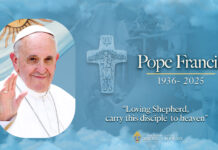

When Our Lady of Fatima appeared to Lúcia, Francisco and Jacinta for the third time, July 13, 1917, she did two things of great importance: first, she showed them a terrifying vision of hell to reveal the horrific suffering that sin causes; and second, she gave them what has come to be known as the Fatima Prayer, which she told them to say at the end of each decade of the Rosary. This little prayer of 27 words has become one of the most significant in the life of Christians as it encompasses major Gospel themes: sin and forgiveness, heaven and hell, and the rich mercy of God. Here is the text of the Fatima Prayer: “O my Jesus, forgive us our sins, save us from the fires of hell. Lead all souls to Heaven, especially those in most need of thy mercy.”
A prayer of great intimacy and love

The opening address of the Fatima Prayer is eminently personal, three simple words: “O my Jesus.” Recall that, according to the Gospel accounts, none of the Apostles dared to address Jesus in such a childlike way. St. Peter often addressed Jesus as “Lord;” for example when he cried out in fear (Mt 14:30), “Lord, save me!” and when he answered Jesus’ question, posed three times, “Do you love me?” with the words (Jn 21:17ff), “Lord, you know everything; you know that I love you.” Other Apostles addressed Jesus as “Master,” “Teacher” or “Rabbi.” However, only one time, according to the Gospel accounts, was Jesus addressed in the same intimate manner as the Fatima Prayer. This was when the Repentant Thief, hanging on the cross next to Jesus, prayed (Lk 23:42), “Jesus, remember me when you come into your Kingdom.” The Repentant Thief had no one else to whom he could turn for mercy; but keenly aware of his own dire straits as well as his unworthiness, yet trusting in the love of Christ, he left an example for all of us who also stand in urgent need of God’s mercy.
These three words that begin the Fatima Prayer sound spontaneous and natural on the lips of children, not too forward, not disrespectful, not out of place. Jesus tells us (Mt 18:3), “Amen, I say to you, unless you turn and become like children, you will not enter the Kingdom of heaven.” When we pray the Rosary, we place ourselves in spirit beside the Mother of God and pray like God’s beloved children.
EN ESPAÑOL: La oración de Fátima
Moving from ‘my’ to ‘us’

Rather suddenly, after that intimately personal beginning, i.e. “O my Jesus,” the prayer then situates us in solidarity with others: “Forgive us our sins, save us from the fires of hell, lead all souls to heaven ….” This prayer, like the “Our Father” that Our Lord taught us, lifts us out of the narrow realm of our own ego and unites us with all our brothers and sisters. A prayerful solidarity arises from the humble awareness of our sins and our longing for the mercy of God.
Our attention is also drawn to the “fires of hell” in the very center of the Fatima prayer — why does Our Lady teach us to pray in this way? Because she is faithful to her mission from God. Recall how Jesus warned us of the danger of hell (Mk 9:43), “If your hand causes you to sin, cut it off. It is better for you to enter into life maimed than with two hands to go into Gehenna, into the unquenchable fire.” It is not by accident that Jesus began His public ministry by calling sinners to conversion (Mk 1:15), “This is the time of fulfillment. The Kingdom of God is at hand. Repent, and believe in the Gospel.” He also taught us to say, “Lead us not into temptation but deliver us from evil.”
‘Lead all souls to heaven’
Teaching us to intercede for souls is the heart of Our Lady’s message at Fatima. When she appeared to the three children in August 1917, she said, “Pray, pray very much, and make sacrifices for sinners; for many souls go to hell, because there are none to sacrifice themselves and to pray for them.”
The three children of Fatima took to heart Mary’s request. They dedicated themselves, throughout each day, to praying the Fatima Prayer, not only at the end of each Rosary decade but also at other times. This prayer perfectly resonated with their confidence in the mercy of God. One can easily imagine them saying with St. Faustina, “Jesus, I trust in you.” At the same time, they had no doubt that their mission from God was to pray for “all souls … especially those in most need of thy mercy.”
Without God, we shall never have peace; there will always be conflict. Still, peace is a gift the Father desires for all, and which He gladly gives to whomever turns in faith to Him, with the trust of a little child. May Sts. Jacinta and Francisco teach us how to promote peace in the world and in each of our homes.






